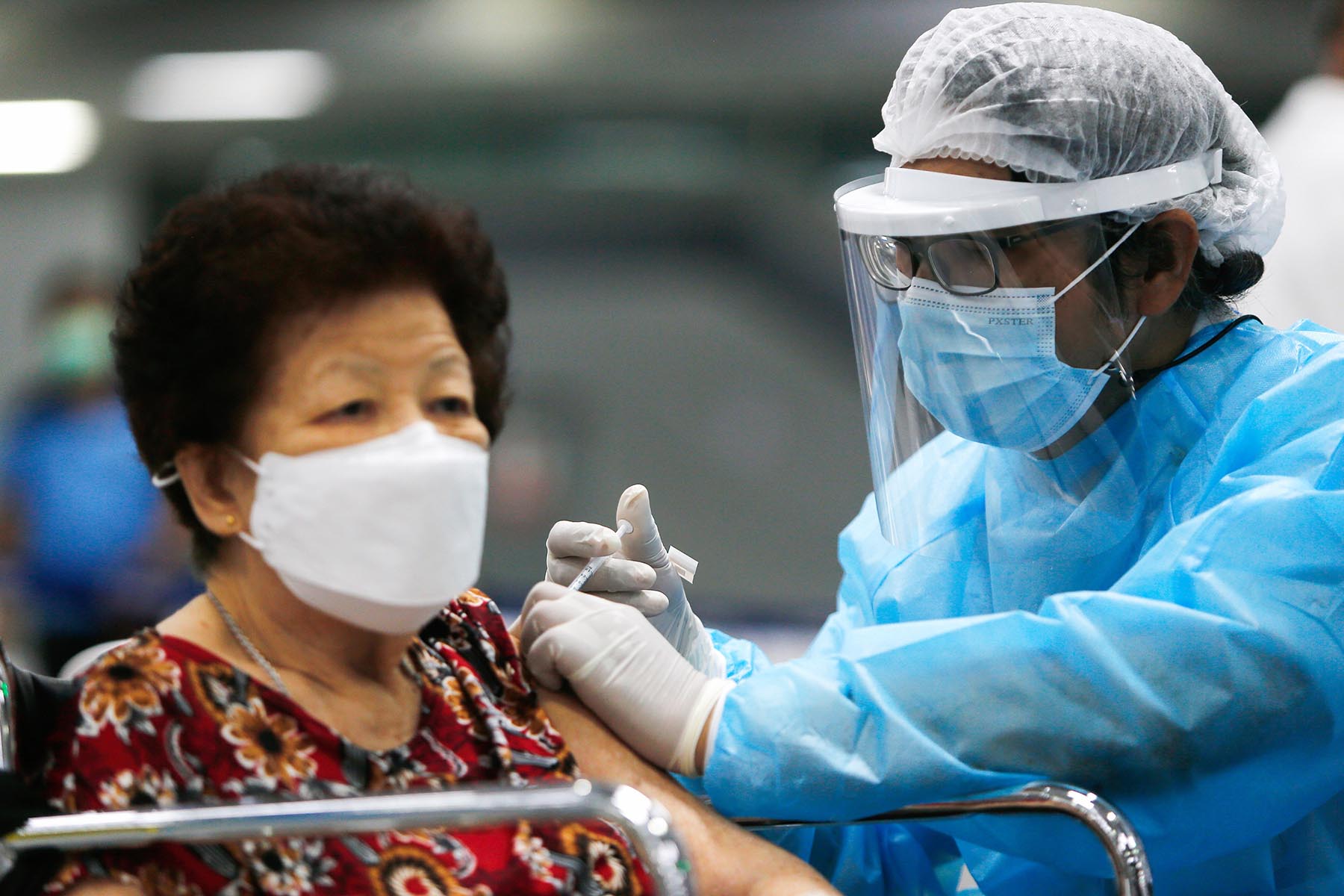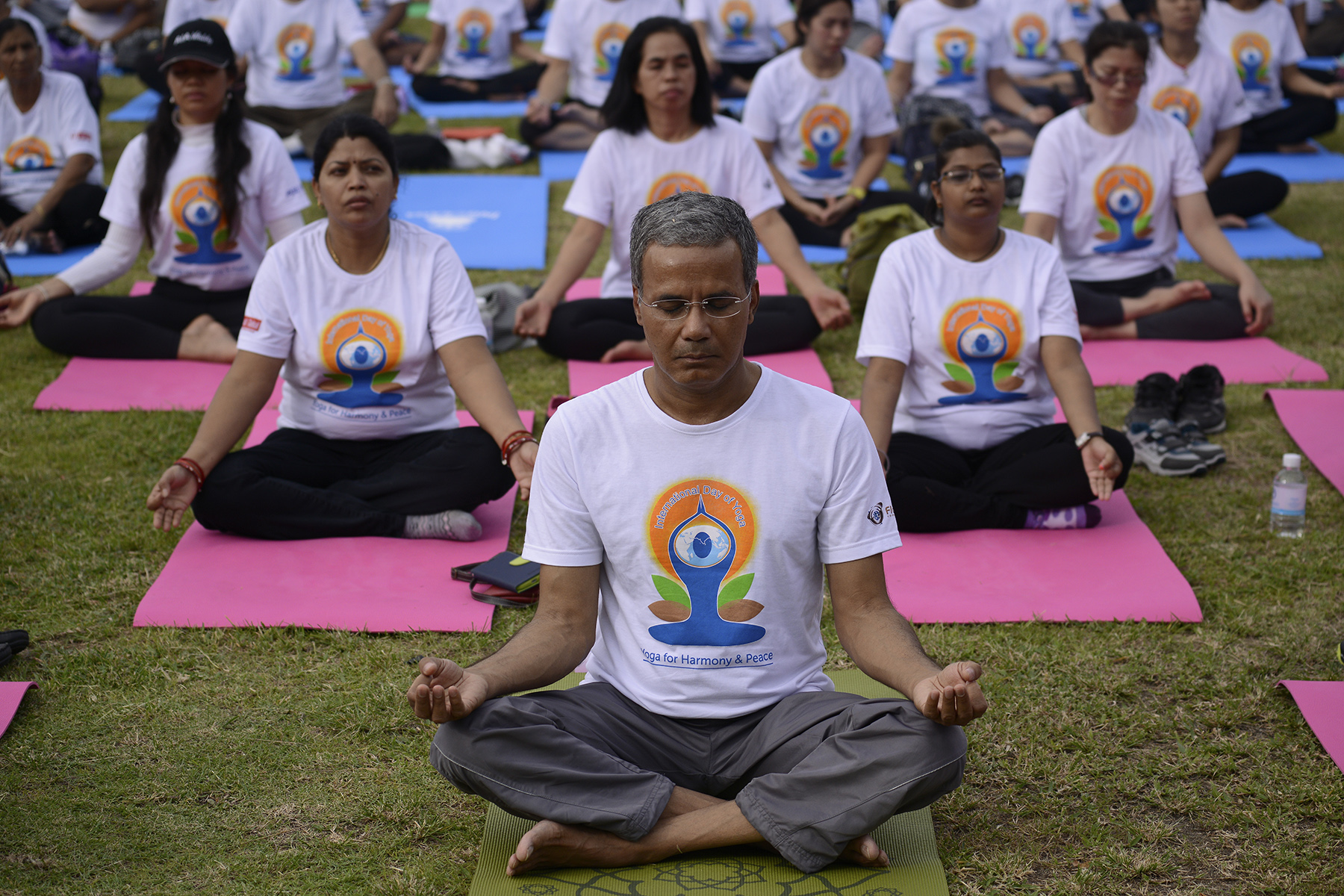Over the last 20 years, Thailand’s universal healthcare system has greatly improved the health outcomes of its residents. Most medical services and medications are available for free or very affordable rates, and the quality of care is high.
However, only certain expats qualify for healthcare coverage in Thailand without taking out private health insurance.
Keep reading to find out more about Thai healthcare for internationals, including:
- Overview of healthcare in Thailand
- How much is Thai healthcare?
- Do you need health insurance in Thailand?
- How do you register for Thai healthcare as an international?
- Private healthcare in Thailand
- How do you find a doctor in Thailand?
- Women’s healthcare in Thailand
- Children’s healthcare in Thailand
- Dentists in Thailand
- Thai hospitals
- Thai health centers and clinics
- Pharmacies in Thailand
- Thai mental healthcare
- COVID-19 in Thailand
- Thai support for long COVID
- Physical therapy in Thailand
- Alternative medicine in Thailand
- Thai community-based health and wellbeing
- What do you do in an emergency in Thailand?
- How do you make a complaint about Thai healthcare?
- Useful resources
Allianz Care
Allianz Care is a world leader in providing international health insurance. Their various premiums provide professionally designed solutions for a variety of expat lifestyles. So, wherever your life takes you, make sure you have the right health protection for you and your family with Allianz Care.
Overview of healthcare in Thailand
The healthcare system in Thailand
Since 2002, Thailand has had a universal public healthcare system that offers mostly free medical treatment to 98% of the population.
Healthcare in Thailand is very high quality, currently ranking 31st on the 2023 Legatum Prosperity Index and an impressive 5th on the 2021 Global Health Security Index. However, there are still major disparities in accessibility between larger cities and rural areas.
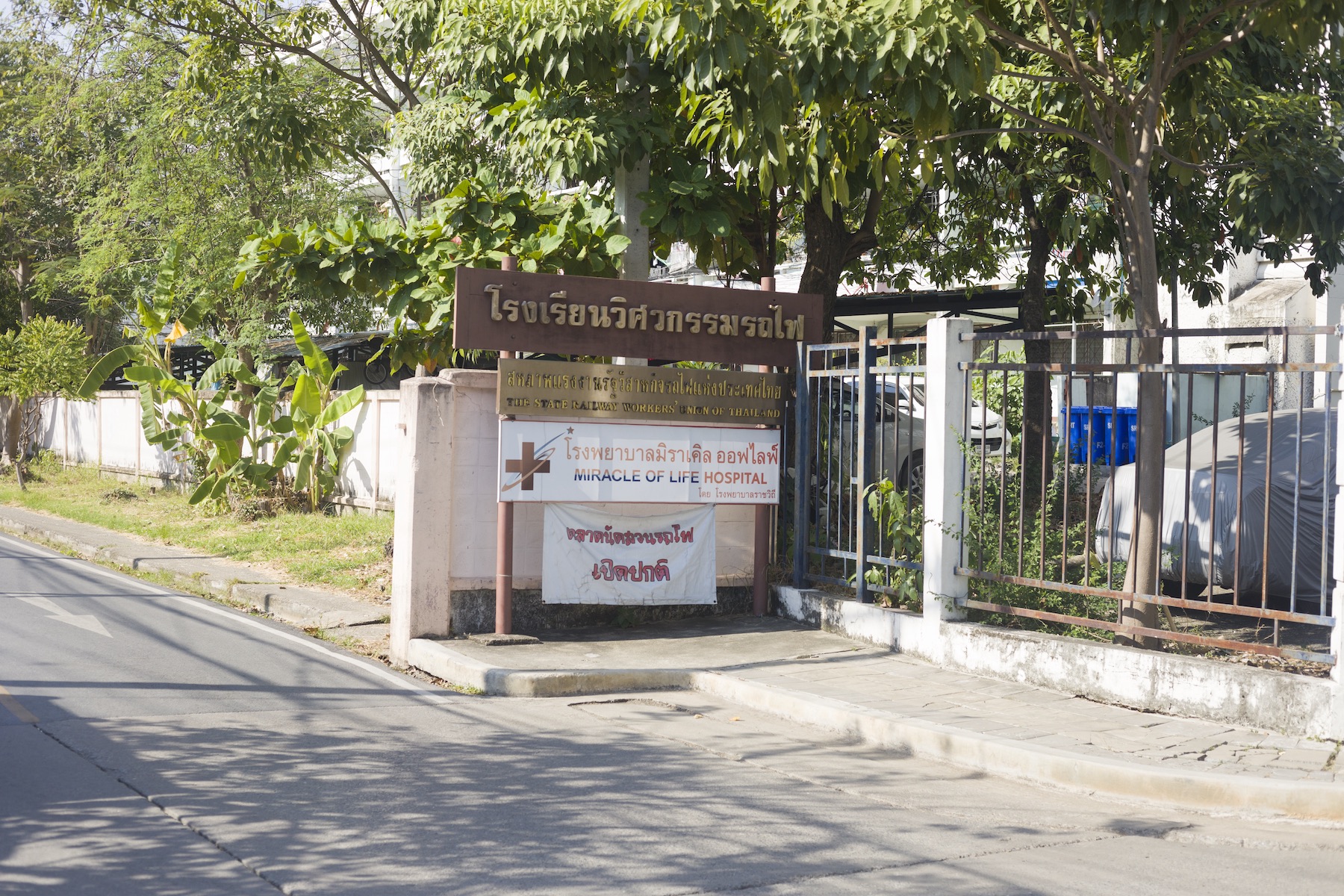
The Ministry of Public Health (MOPH – กระทรวงสาธารณสุข) is responsible for healthcare in Thailand, while the National Health Security Office (NHSO – สำนักงานหลักประกันสุขภาพแห่งชาติ) issues funding across 13 health regions. Although most of the population uses the universal coverage scheme (UCS), there is also a sizable private health sector. Public services are delivered through a network of hospitals, healthcare centers, and clinics operating across the country.
Life expectancy in Thailand has dramatically increased in the last few decades and currently stands at 74.4 years (PDF) for men and 81 years for women.
Who can access healthcare in Thailand?
Expats living in Thailand generally do not have automatic access to the public healthcare system unless they work for a Thai employer and contribute to Thailand’s Social Security Scheme (SSS). This works as follows:
| Type of scheme | Who it covers | Percent of the population |
| Social security | Universal Coverage Scheme (UCS) | 2% |
| Civil servant medical benefit | Thai civil service workers and their dependents | 7.7% |
| Social health insurance | Private sector workers with health insurance | 19% |
| Universal Coverage Scheme (UCS) | The general tax-paying population | 71.3% |
Since most expats are not covered by the universal healthcare system, it’s important to take out health insurance to access medical services in Thailand. Even if you do have public coverage, you may prefer private services since they generally have shorter wait times and more English speaking doctors.
Compare health insurance packages to see which suits your needs and budget best by starting with these trusted international providers:
How much is Thai healthcare?
Thai healthcare costs are generally very affordable but can vary depending on whether you have universal health coverage and if you’re a citizen or a foreigner.
Under the public healthcare system, doctors and specialists charge ฿30 to 500 for a basic checkup. If you decide to go to a private healthcare provider without insurance, you can expect to pay from around ฿700 for a basic health check to ฿500,000 or more for extensive surgery.
Before Thailand moved to its current universal public-funded system, the Thai government and the people made nearly equal contributions to healthcare costs. In 2020, however, government spending (70.4%) was far greater than out-of-pocket costs (10.5%), with the remainder mainly funded through insurance payments.
Thailand currently spends 4.36% of its gross domestic product (GDP) on healthcare (2020), which is less than half the average of 9.6% (2021).
Do you need health insurance in Thailand?
Healthcare in Thailand is partly insurance-based. Most private sector employees, whether national citizens or expats, make social security payments that include health insurance contributions.
This entitles them to public healthcare treatments. The remainder of the citizen population can access mostly free public healthcare through the UCS, funded through general taxation.
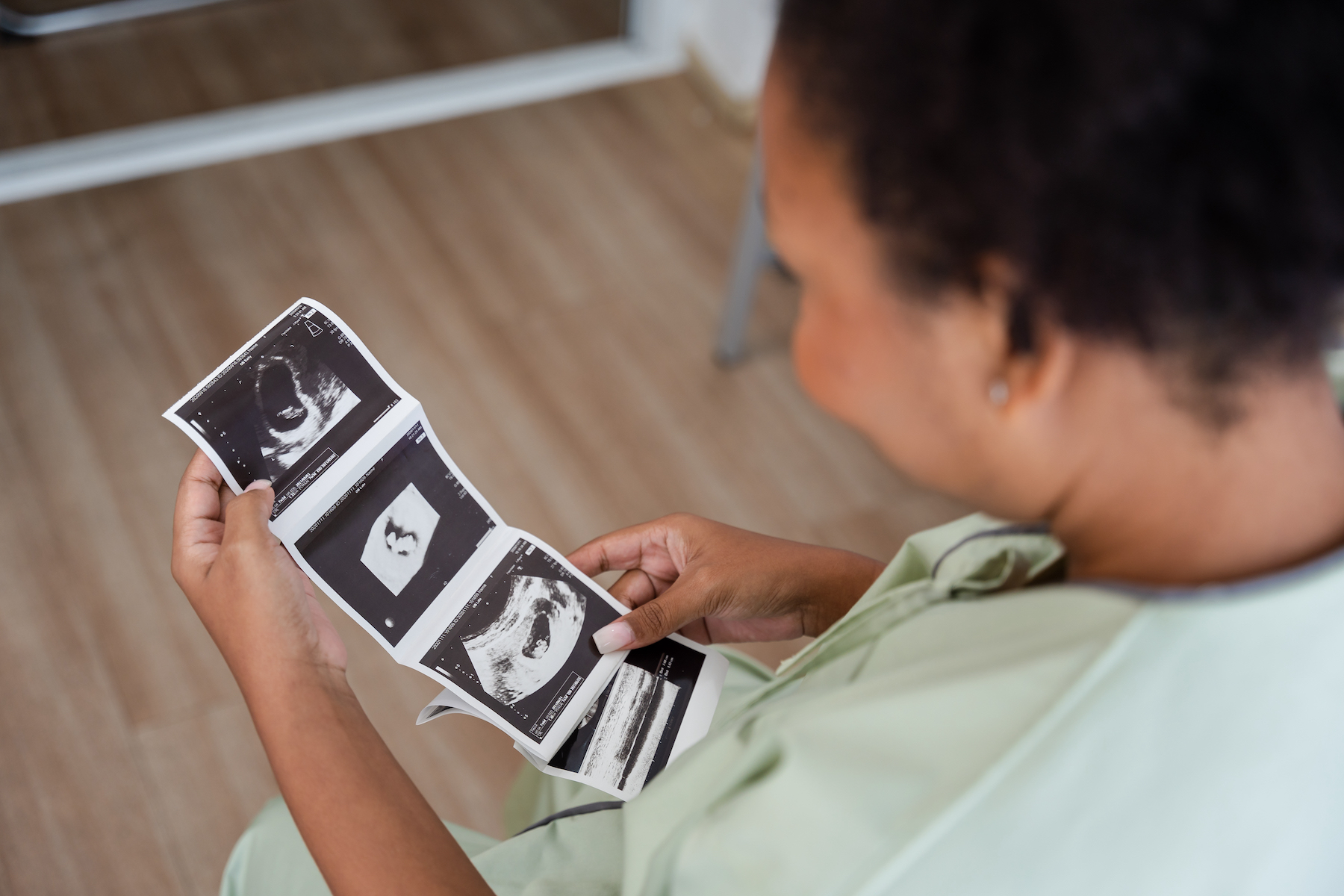
Short-stay visitors to Thailand and those moving to the country without the intention to work will need to purchase private health insurance. This is usually a stipulation of Thai visa applications.

Health Insurance Expert, Cigna
Bobbie Simpson
Insider Tip: Healthcare Coverage
Unless covered by a Thai employer, you’ll likely need private insurance and Thai regulations require coverage of at least $100,000.
How do you register for Thai healthcare as an international?
Employers register their expat employees for public healthcare in Thailand, giving them access to the same services as Thai citizens.
Your employer should enroll you in social security – either the social health insurance or the civil servant medical welfare scheme – once you start working in Thailand.
After registration, you will receive a social security card to take to any healthcare appointments to prove you are entitled to treatment. Everyone who uses public healthcare in Thailand is registered with health centers and hospitals within their district, though they can use any facility in the country.
If you have questions or concerns, a healthcare management company like SIP Medical Family Office can help you get access to medical services in Thailand as a foreigner.
Private healthcare in Thailand
Although public healthcare in Thailand is excellent, private services typically have shorter waiting times, provide a greater selection of treatments, and are more likely to have English-speaking staff.
However, costs are typically more expensive. You can usually cover treatments with a private health insurance policy. Some private employment-based health insurance policies may also cover some treatments in private facilities.
SIP Medical Family Office
International private medical insurance offers excellent coverage and service, plus long-term peace of mind after major medical expenses. It also secures fast access to the best hospitals. As an independent broker, SIP provides advice after comparing the prices and benefits of the available options.
It’s good to check your insurance policy with the facility before agreeing to any medical treatment. If you don’t have insurance, you’ll need to pay the total costs yourself.
Private facilities in Thailand include hospitals and medical clinics. Some of the best private healthcare options in the country include:
- Bangkok Hospital
- Bumrungrad International Hospital
- McCormick Hospital
- MedPark Hospital
- Thai International Hospital
Most private providers offer different packages and have details of costs and plans on their websites. You can shop around for good private health insurance plans that will help you mitigate these costs.
How do you find a doctor in Thailand?
Doctors are part of primary healthcare in Thailand.
The first time you use public healthcare, staff will register you to a primary care unit (clinic, health center, or community hospital) where you can see a family doctor or general practitioner. Most general doctors in Thailand offer appointments and walk-in services, though waiting times may vary.
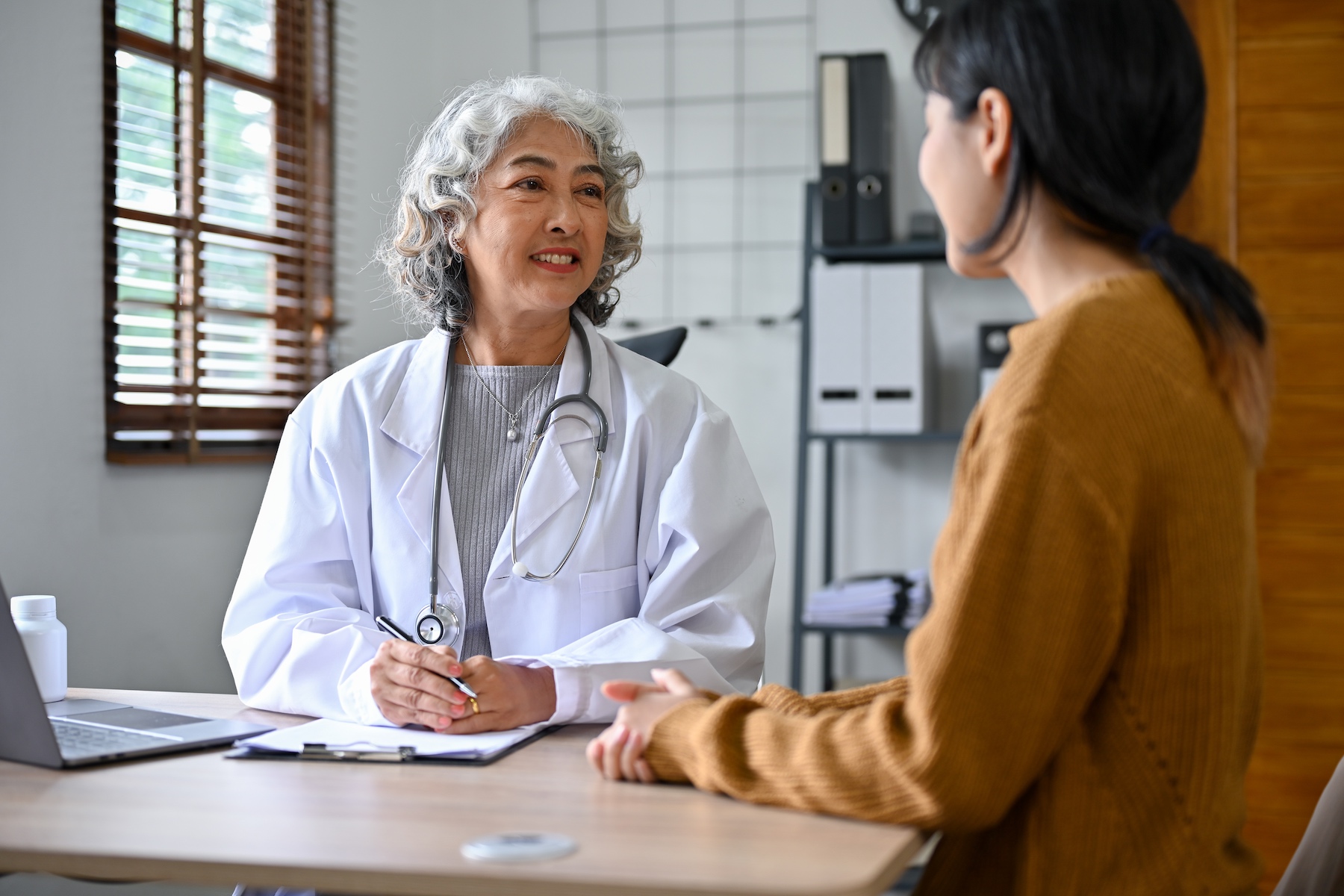
In 2021, Thailand had 0.5 doctors per 1,000 people, below global averages. The majority of doctors in the country are specialists rather than general doctors. Specialists typically work in hospital settings, though some are in clinics.
Unless you go private, you usually need a referral to access a Thai specialist. There are many medical specialists in Thailand, including:
- Oncologists
- Gynecologists
- Cardiologists
- Psychologists
- Radiologists
Women’s healthcare in Thailand
Public facilities in Thailand provide many free women’s healthcare services, including reproductive healthcare, maternity, and cancer screenings.
Women in Thailand can access gynecologists at clinics, health centers, and hospitals. The MOPH began a National Family Planning Program in 1976 to try and reduce the country’s birth rate. This increased access to birth control methods free of charge.
Abortion in Thailand was only legal under special circumstances until 2020, when the law changed to allow terminations until the 12th week of pregnancy. This was increased to 20 weeks in certain circumstances in 2022.
The NHSO provides funding of up to ฿3,000 towards abortion costs, although there is currently a lack of public facilities equipped to carry out abortions. Because of this, many are forced to go private. Reproductive technologies are available in Thailand but only through private healthcare.
There are many private providers of women’s healthcare in Thailand, including the Women’s Health Center based at Bangkok Hospital.
Children’s healthcare in Thailand
Children of Thai citizens automatically receive free healthcare through the UCS, including access to pediatricians, dental treatment, and specialist healthcare treatment.
Schools in Thailand deliver health promotion programs around issues such as dental care, healthy eating and nutrition, and physical activity. Child health in Thailand is generally good, and the country has an infant mortality rate of 9 deaths per 1,000 live births, below Southeast Asia’s regional average of 30 (WHO, 2022).

Expats working in Thailand can often access free public healthcare for their children through their workplace health insurance plans. If you move to Thailand and your insurance policy doesn’t cover family members, you can look to take out private family health insurance or a separate child health insurance policy.
Most general public and private hospitals in Thailand include pediatric departments or children’s facilities staffed by specialists. There are also a number of high-quality children’s hospitals, for example, the privately-run Samitivej Children’s Hospital.
Thailand has a vaccination program for children which includes immunization against diphtheria, hepatitis B, and MMR.
Dentists in Thailand
You can access dentists in Thailand through the public and private sectors in health centers, clinics, and hospitals.
Around half of dentists and hygienists work in the private sector. Public health insurance covers basic checkups and treatments up to a set amount per year. You will need private insurance to avoid paying the full fees for anything above this threshold or specific specialist treatments.
Thailand has 2.7 dentists per 10,000 people, above the Southeast Asia average of 1.5 (WHO, 2022). However, the country has had low levels of dental usage among the population, measured at only 9% in 2011. The Dental Council of Thailand regulates the dental industry to ensure minimum standards.
Thai hospitals
There are almost 1,300 hospitals in Thailand, 80% of which are public and run by the MOPH.
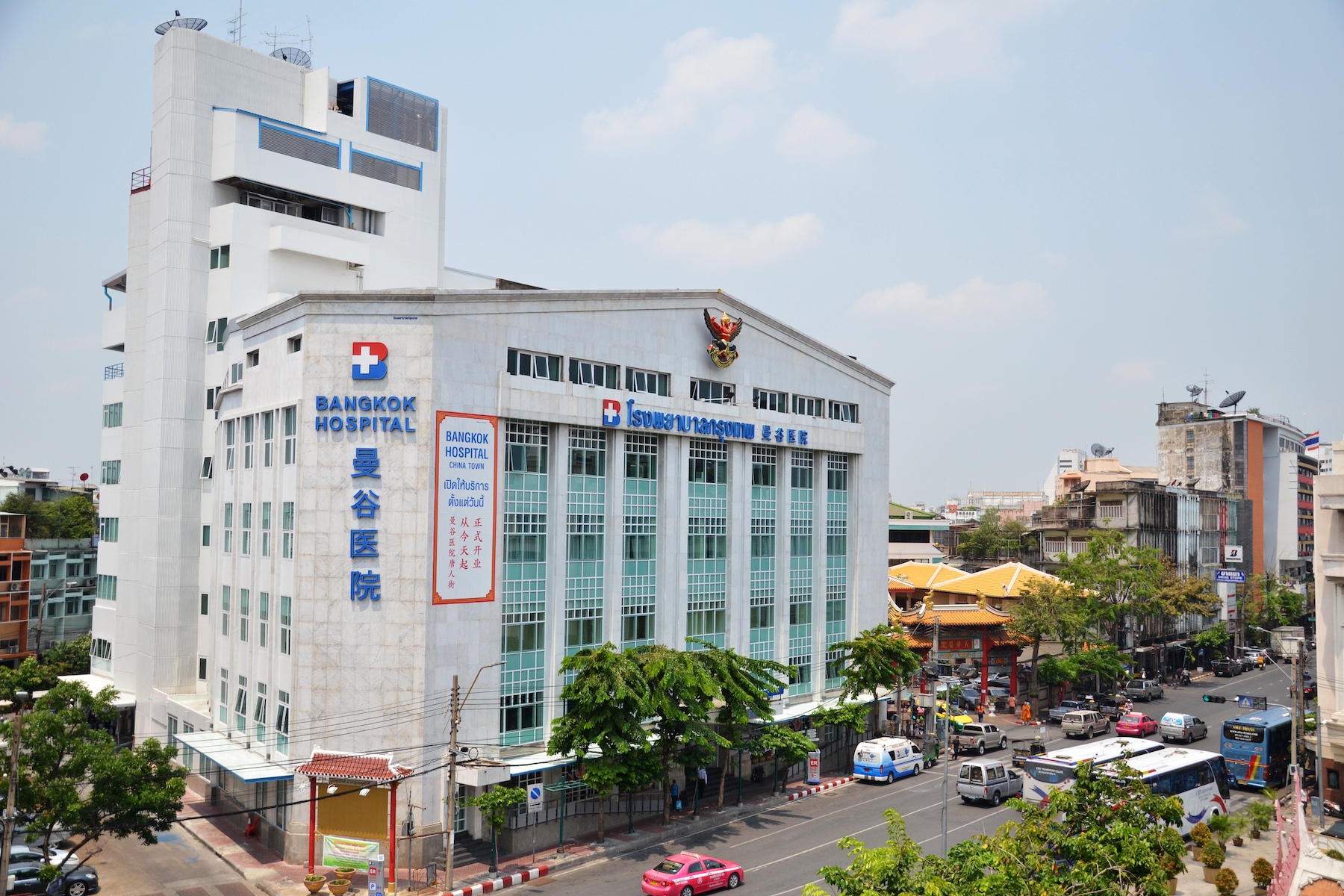
In Thailand, hospitals generally provide inpatient and outpatient care, plus emergency treatment and maternity services. Community hospitals are smaller, usually with a maximum of 120 beds, and provide primary care services.
General and regional hospitals provide secondary and specialist care, often via community hospital referral. Specialist hospitals in Thailand include children’s, psychiatric, and cardiac hospitals.
Public health insurance covers most standard treatment in MOPH hospitals, and some private hospitals also provide services under public insurance.
Thai health centers and clinics
Health centers are generally the first level of localized primary healthcare in Thailand and where you will typically find medical professionals, including:
- Nurses
- Doctors
- Physicians
- Dentists
- Pharmacists
The MOPH runs almost 10,000 health centers at the sub-district level that cover around 5,000 residents each. In addition to this are a number of clinics and community medical centers operated by local government authorities. When you register for public healthcare in Thailand, you will be allocated to your nearest health center or clinic, which will act as your first port of call when it comes to medical needs.
In addition to public sector facilities, there are over 17,000 private clinics where you will find private general doctors and other specialist medical professionals.
Pharmacies in Thailand
Thai pharmacies provide a range of medications, with some also offering advice and information on health issues.
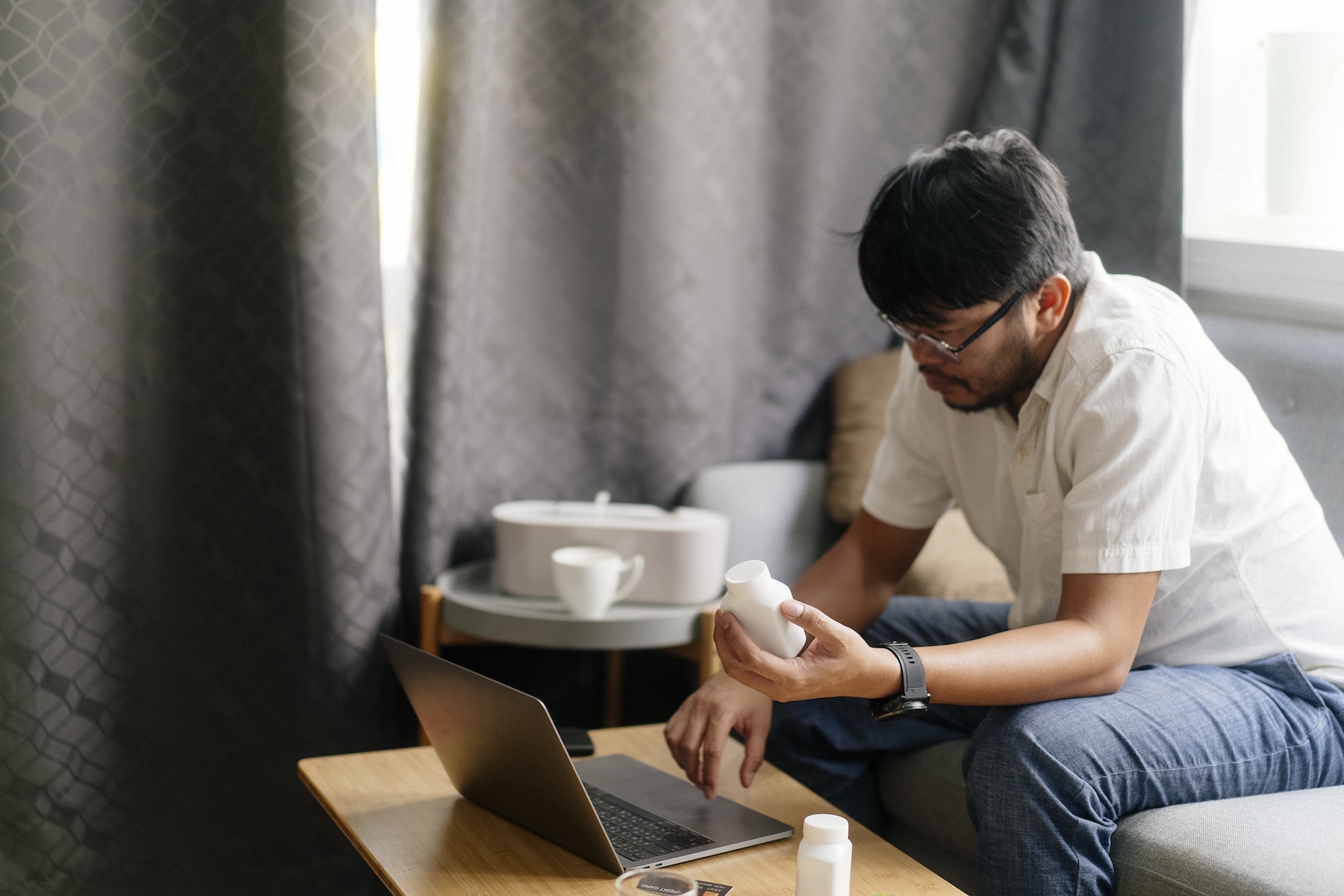
There are essentially two types of Thai pharmacies. These are:
- Type I pharmacies – accredited pharmacies licensed to sell prescription drugs as well as over-the-counter products, usually found in primary healthcare units (e.g., health centers or hospitals) as well as in other areas. They are typically staffed with at least one medical expert
- Type II pharmacies – can only sell over-the-counter medication and may not be able to provide expert advice, found on the main street as well as within supermarket stores
Some expats may be surprised to find that many Thai pharmacies sell medications like antibiotic drugs over the counter. Type II pharmacies often also sell unregulated alternative and herbal remedies. In Thailand, the Government Pharmaceutical Organization (GPO – องค์การเภสัชกรรม) oversees drug regulation, and all official drugs need a license from the Thai Food and Drug Administration (TFDA – สำนักงานคณะกรรมการอาหารและยา).
Public health insurance in Thailand covers most prescription medications. You can also take out private insurance to cover out-of-pocket costs if you take expensive medicines regularly. However, medication prices are low in Thailand, even without insurance. It is the least expensive of 50 countries on the 2019 Medicine Price Index.
There are over 17,000 pharmacies in Thailand, easily identified with a green cross logo. Many have late-night opening hours, with 24-hour pharmacies in urban areas.
Thai mental healthcare
As with so many countries, Thailand’s mental healthcare provision falls some way below that of physical healthcare. Focus has improved recently, and the Thai Department of Mental Health (กรมสุขภาพจิต) advises the MOPH on what is needed.
Unfortunately, Thailand severely lacks preventative mental healthcare and has a shortage of professionals available to help those with serious problems.
If you experience mental health issues in Thailand, you should contact your doctor, who will refer you to specialist services if needed. There are numerous hospitals and health centers in Thailand that deal specifically with mental health. Through private insurance, you also gain access to therapy and wellness services.
COVID-19 in Thailand
As of 2023, Thailand has no COVID-related travel restrictions or social distancing measures in place, but the government still recommends booster vaccines for all residents over 18.
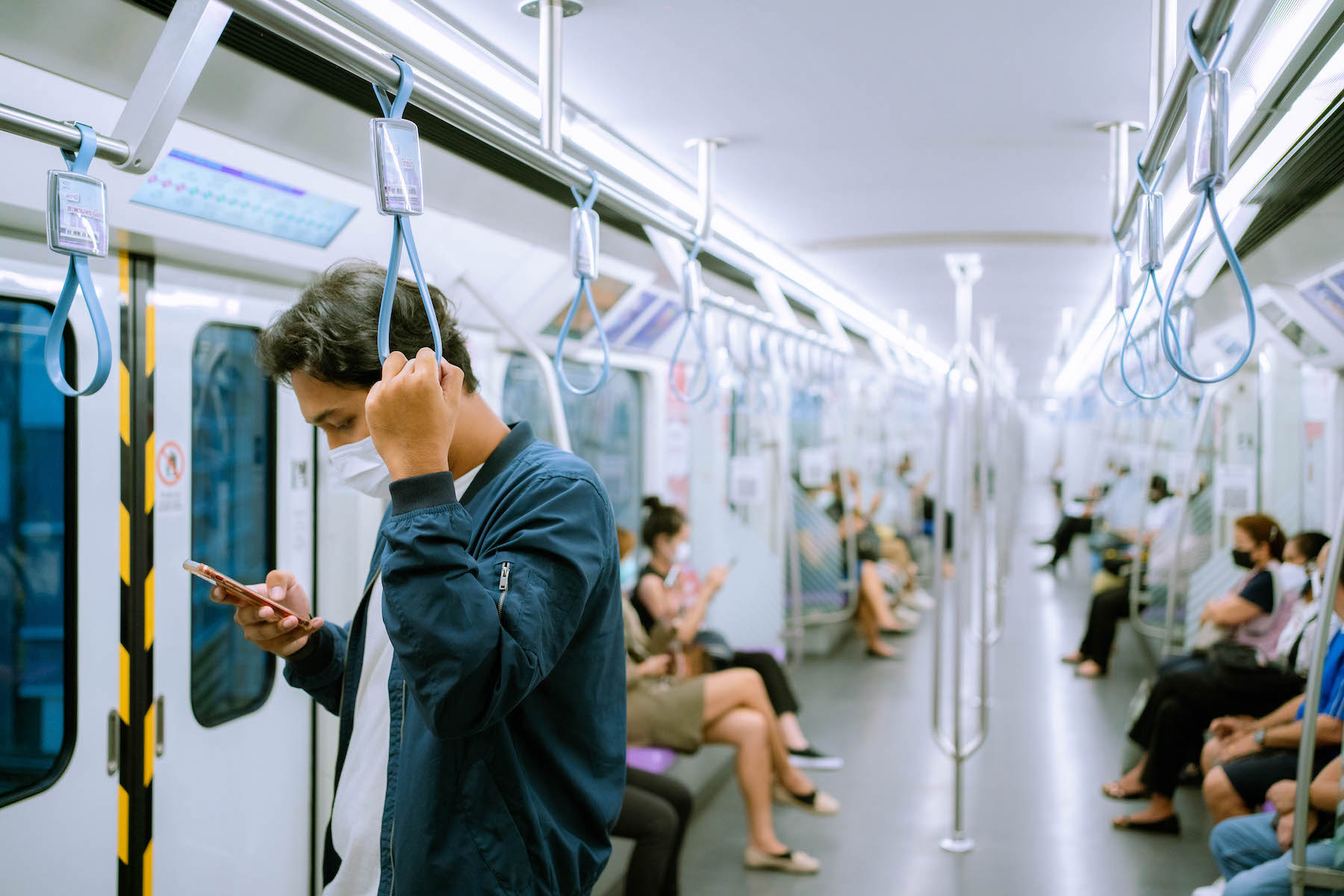
When COVID-19 was first reported, the Thai government acted swiftly to restrict the spread of the virus, including screening, immigration controls, contact tracing measures, and partial lockdowns. Although restrictions are lifted, at-home COVID-19 tests are still widely available at pharmacies across Thailand, and hospitals offer PCR tests.
The Thai government continues to urge residents to get COVID-19 booster vaccines, even as cases drop to all-time lows in 2023.
Thai support for long COVID
People who contract COVID-19 can often experience lingering after-effects, including fatigue, concentration problems, body aches, and long-term loss of taste/smell. This condition is known as long COVID and has gained growing attention over the past couple of years, but there is so far still limited research.
According to the Department of Medical Services (กรมบริการทางการแพทย์) in Thailand, 10 to 20% of COVID-19 patients develop long COVID. Private medical facilities have led the way in the response to the condition, including:
- Samitivej Hospital, which has opened a long COVID center
- Bangkok Hospital, which offers holistic recovery programs based on checkup results
- Bumrungrad Hospital, which has a long COVID package
Public facilities are catching up, and the MOPH has issued guidelines to regional health authorities on setting up long COVID Clinics. The Bangkok Metropolitan Administration has now established nine clinics in the area.
There is a lack of long COVID support networks in Thailand. However, those wanting advice or support can reach out to the Survivor Corps, which is a worldwide online support group.
Physical therapy in Thailand
Most physical therapy available through public facilities in Thailand is focused on rehabilitation from illness or injury.
You can find therapists such as physiotherapists, occupational therapists, sports therapists, or cardiorespiratory therapists at some community hospitals, health centers, and general hospitals.
Typically, you will need a referral for treatment.

Private facilities tend to offer a wider range of treatment options. Prices are higher – starting at around ฿2,000 per hour – but you can cover costs using many private insurance packages.
Most registered physiotherapists are members of the Physical Therapy Association of Thailand (สมาคมกายภาพบำบัดแห่งประเทศไทย), which has a list of physical therapy facilities in the country.
Alternative medicine in Thailand
Thai traditional medicine is widely available in Thailand. This includes practices such as Thai massage, sauna, and herbal compression. Around 90% of public hospitals and 55% of health centers offer some form of TTM treatment.
TTM is more widely accepted and available than other forms of alternative medicine in Thailand and is the only form of complementary therapy that is fully regulated in the country. You can also find practitioners of traditional Chinese medicine (TCM) treatments, including acupuncture, homeopathy, osteopathy, and chiropractic therapy. However, these are less widely available through public healthcare and usually need private insurance coverage if you want to avoid paying full costs.
Thai community-based health and wellbeing
Thailand has a strong culture of community health volunteers that assist with health promotion and disease prevention in the country. These volunteers are largely based in rural parts of Thailand and number approximately one million – around 15 per 1,000 inhabitants.
Volunteers work to assist public health professionals and perform duties such as:
- Disseminating health information and advice
- Promoting health activities and initiatives
- Running small community wellness projects
- Assisting with data collection and record keeping, like helping with health surveys
Community health volunteers were also praised as heroes in Thailand for their support during the COVID-19 pandemic.
What do you do in an emergency in Thailand?
The number for a medical emergency in Thailand is 1669. You can also call 1155 to reach an emergency advice line for foreigners.
Alternatively, travel to the nearest general or regional hospital, as these usually have emergency rooms.
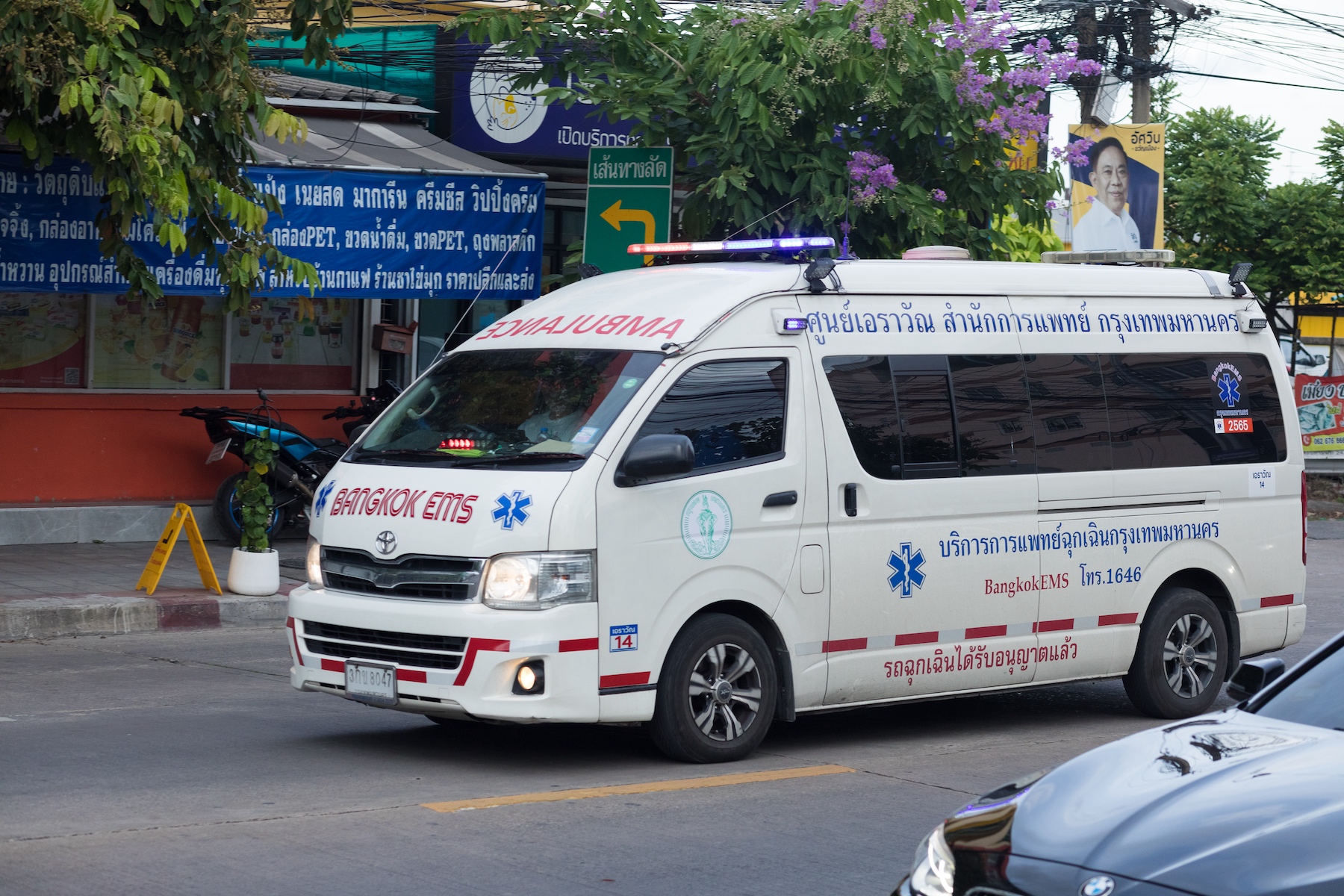
Thailand has a somewhat unique emergency response setup that consists of three levels. The first is staffed with volunteers trained to respond to non-life-threatening situations. Level two is basic life support, and level three is advanced life support. The level you require will be determined when you make the initial emergency call.
All hospitals in Thailand offer emergency care regardless of financial or insurance situation. However, you may receive a bill for payment if you don’t have insurance coverage. This is more likely if you receive treatment in a private facility.
How do you make a complaint about Thai healthcare?
If you have a complaint about a healthcare provider in Thailand, you should contact the provider directly in the first instance. They may be able to resolve the issue so that you don’t have to take it further.
If this is unsuccessful, you can contact:
- For public healthcare providers: Ministry of Public Health (MOPH) Tivanond Road, Nonthaburi 11000, Thailand (if you are complaining about a public healthcare service)
- For private healthcare providers: Foundation for Consumers: 4/2 Soi Watthanayothin, Thanon Phaya Thai, Ratchathewi, Bangkok 10400, Thailand (if you are complaining about a private provider)
Alternatively, you can take legal action through the Thai courts. However, this can be a long, expensive process, so it’s a good idea to seek advice from an attorney first.
Useful resources
- Thailand Medical Hub – Department of Health website with information on health services
- National Health Security Office (NHSO) – manages the universal public healthcare service for Thai citizens
- WHO report – 2015 review of Thailand’s healthcare system
- Thai Healthcare System and Health Policy (2021) – overview by the Department of Community Medicine
- Government Pharmaceutical Organization (GPO) – a Thai government agency that regulates prescription medications and drugs



